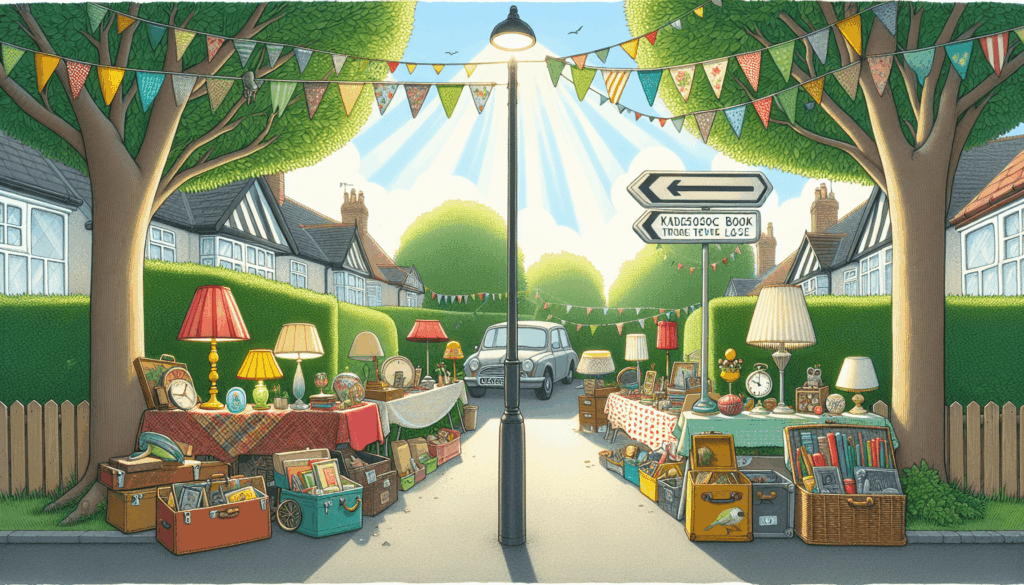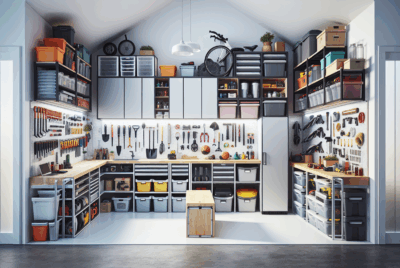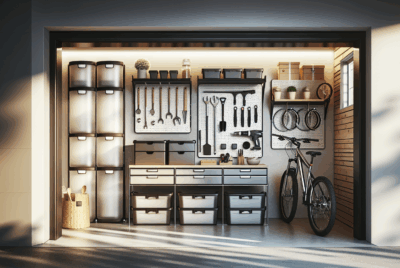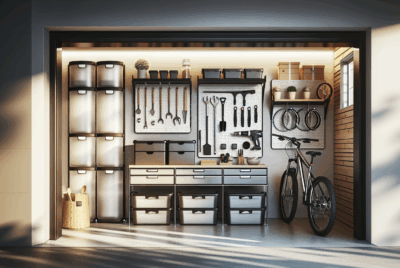How to Organize a Successful Garage Sale
As an Amazon Associate, I earn from qualifying purchases, at no additional cost to you. Disclaimer
Have you ever wondered how some people manage to turn their garage sales into successful community events while others struggle to sell a single item? Organizing a garage sale might seem as simple as putting a few things on your driveway, but there’s an art to making it successful. I’ve discovered that a well-organized garage sale requires thoughtful planning, effective marketing, and a bit of psychology to understand your shoppers. Let’s explore how to transform your simple sale into a fun, profitable event that not only helps you declutter your home but also connects you with your neighbors.
Click Here to Organize Your Garage Today
Understanding the Purpose of Your Garage Sale
Before getting started with the nuts and bolts, let’s first consider why you’re having a garage sale. Are you primarily looking to declutter your home? Do you want to make some extra cash? Understanding your primary motivation will help shape your overall strategy and priorities.
Decluttering Versus Profit
If your main goal is to eliminate unwanted items, you might be more inclined to price things to sell quickly. On the other hand, if making money is your priority, you might want to set your prices a bit higher and be prepared to negotiate with potential buyers. Knowing your purpose will help guide decisions related to pricing, advertising, and negotiation.
Timing is Everything
Choosing the right day and time for your garage sale is one of the first decisions you’ll make, and it’s critical for attracting the most visitors.
Best Days to Host a Sale
Typically, weekends are the best days for garage sales. Saturdays are ideal, as many people have the day off and are more likely to be out and about. In some areas, Friday sales can be popular as well since some people prefer to shop when the crowds are smaller.
Consider the Weather
Keep an eye on the weather forecast as your sale date approaches. While you can’t predict the weather perfectly, scheduling your sale on a mild, sunny day is more likely to draw in customers than holding it during a downpour or extreme heat.
Optimal Sale Hours
Most garage sales are successful when they’re held in the morning, starting around 7 or 8 a.m. Early birds will appreciate the opportunity to get first dibs on your treasures, and closing shop around mid-afternoon allows you to avoid the heat or unexpected weather changes.

Click Here to Organize Your Garage Today
Gathering and Sorting Your Inventory
A successful sale begins with having a wide variety of items available, but it’s equally important to ensure those items appeal to your potential buyers.
Assessing What to Sell
Go through your home room by room to identify items you no longer use or need. Be sure to check attics, basements, closets, and garages. Items in good condition, such as lightly worn clothing, tools, toys, furniture, and home decor, tend to sell well.
Sorting and Categorizing
Once you’ve gathered potential sale items, sort them into categories. This makes it easier for shoppers to find what they’re looking for. Common categories might include toys, clothing, kitchenware, and electronics. A categorized layout not only appeals to buyers but also creates a more organized and visually appealing display.
Pricing Your Items Right
Setting the right price for your items can be tricky but crucial to the success of your sale. Overpricing can deter buyers, while underpricing can result in lost revenue.
Do Your Research
Take time to research the going rates for similar items online or at local thrift stores. This will give you a baseline to work from when pricing your own items. Remember that garage sale shoppers are looking for deals, so aim to price items at about 10-30% of their original retail value, depending on their condition and demand.
Using Price Tags and Signs
Clearly labeled price tags are essential. Use stickers or tags and make sure they are legible. For higher-priced items, consider adding a brief description to explain their value.
Here’s a simple table that shows some general guidelines for pricing:
| Item Category | Price Range (as a percentage of original price) |
|---|---|
| Clothing | 10-20% |
| Furniture | 20-30% |
| Electronics | 15-25% |
| Toys | 10-20% |
| Books | 10-15% |

Click Here to Maximize Your Garage Space
Marketing Your Garage Sale
Once you’ve organized your items and set the date, it’s time to let the world know about your sale. Effective marketing can significantly increase your foot traffic and sales.
Creating Eye-Catching Signs
Bright, bold signs placed around your neighborhood are one of the most effective ways to drum up business. Use arrows to guide visitors from major intersections and include your sale date, time, and address. Make sure the text is large and readable from a distance.
Leveraging Online Platforms
Take advantage of online platforms and local social media groups. Websites like Craigslist, Facebook Marketplace, and Nextdoor are great places to post about your garage sale. Include photos of some of your best items to attract interest.
Word of Mouth
Don’t underestimate the power of word of mouth. Mention your sale to friends, family, and coworkers. They might not only come themselves but also bring along a few friends.
Setting Up for Success
The setup of your garage sale can greatly affect its success. Consider creating a pleasing and accessible layout, which will attract more customers and make shopping easier.
Creating an Inviting Layout
Arrange items neatly and in a way that makes sense. Place larger, attention-grabbing items closer to the front to draw people in, and group similar items together. Place a table with small, more expensive items near you or a helper for added security.
Providing Easy Access
Make sure there’s enough space for people to move freely. Avoid cluttered areas, as these can be overwhelming and may deter potential buyers.
Having a Checkout Area
Set up a dedicated checkout area with a cash box, calculator, and receipt book for big ticket sales. Ensure you have plenty of small bills and coins for change. Consider using a mobile payment app for customers who prefer digital transactions.
Engaging with Customers
A friendly interaction goes a long way in creating a positive shopping experience and can lead to more sales.
The Art of Negotiation
Be open to negotiation, as many garage sale shoppers enjoy bargaining for a better deal. Keep your bottom line in mind and be willing to lower prices, especially as the day goes on and you’re eager to sell more items.
Answering Questions
Be prepared to answer questions about your items. If a potential buyer is interested in an item but hesitant, sharing its story or highlighting its best features might tip the scales in your favor.
Creating a Friendly Atmosphere
Greeting customers with a smile and being approachable can make your sale more enjoyable. Playing some light music can also enhance the atmosphere, making people more comfortable and likely to stay longer.
After the Sale: Wrapping Up
Once your sale is over, there are still a few tasks left to wrap up the event.
Dealing with Unsold Items
Decide in advance what you’ll do with unsold items. Consider donating them to a local charity or second-hand store. Many places offer pick-up services, which can be a hassle-free solution.
Counting Your Earnings
Take a moment to count your earnings and see how your predictions compared with the actual outcome. This can help if you plan to hold more garage sales in the future.
Reflecting on What Worked
Reflect on what worked well and what could be improved for next time. Did certain advertising strategies perform better? Were there specific times when sales were higher? Use this information for future sales or to share tips with friends and family.
Conclusion
Organizing a successful garage sale requires more than just setting out unwanted items. With thoughtful planning, strategic pricing, and effective marketing, your sale can be both fun and profitable. Keep your primary goals in mind, use negotiation tactics to your advantage, and engage positively with your customers. Once the day is done, you’ll not only have cleared out some clutter but perhaps also made new connections in your community. Happy selling!




